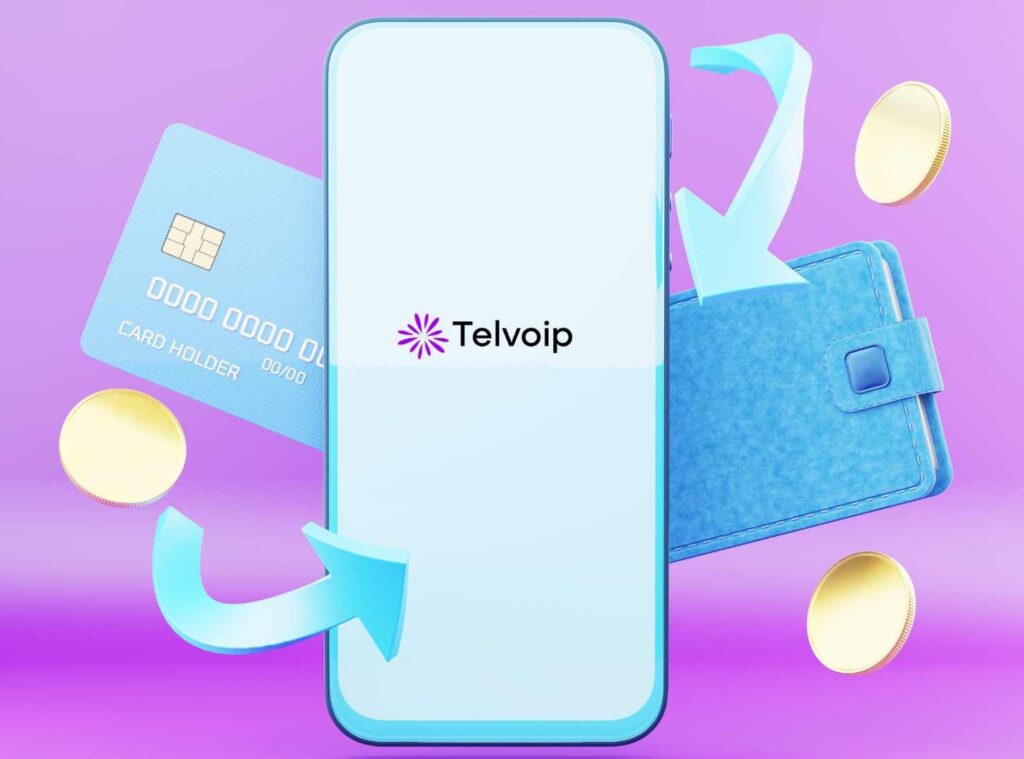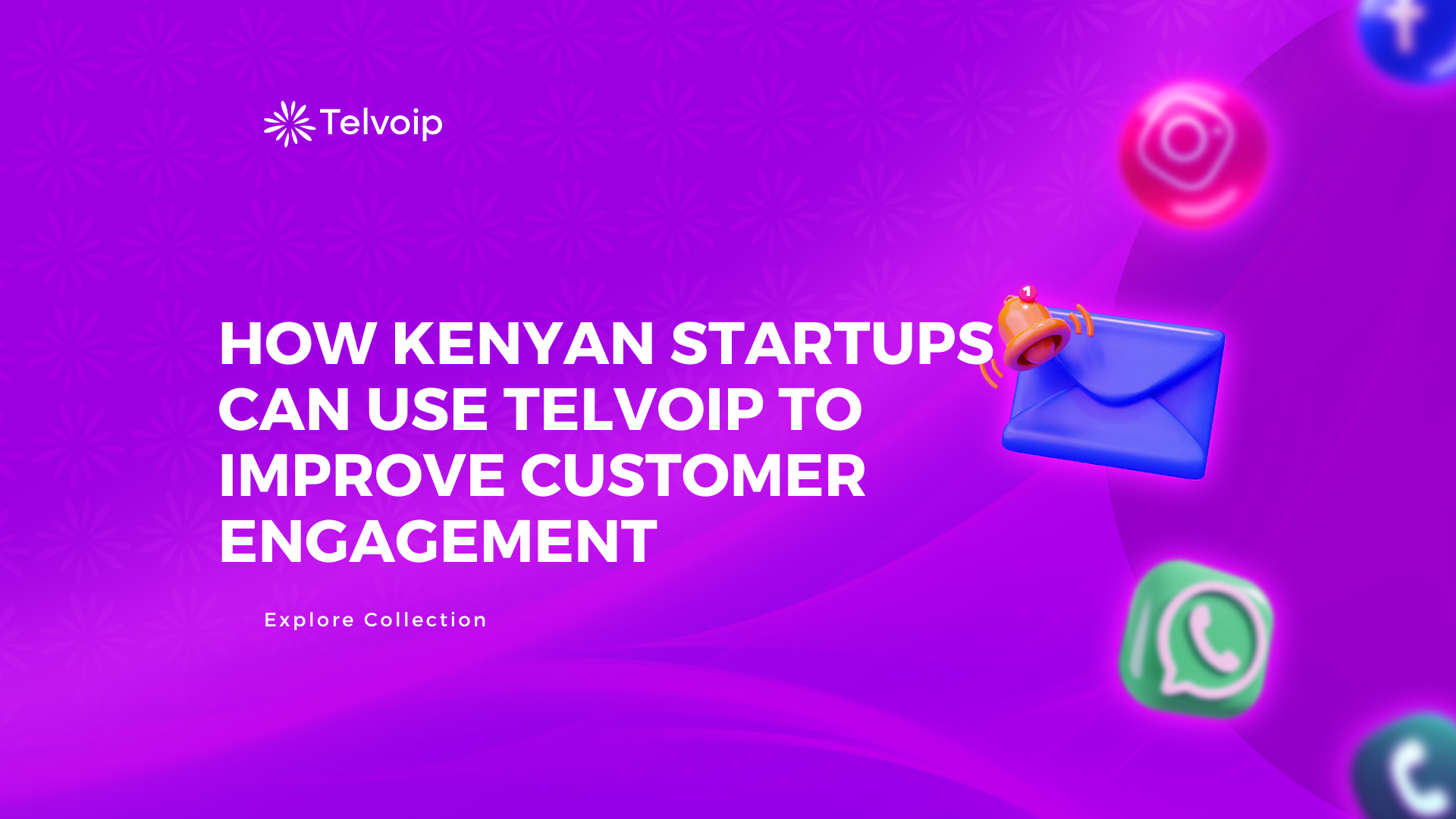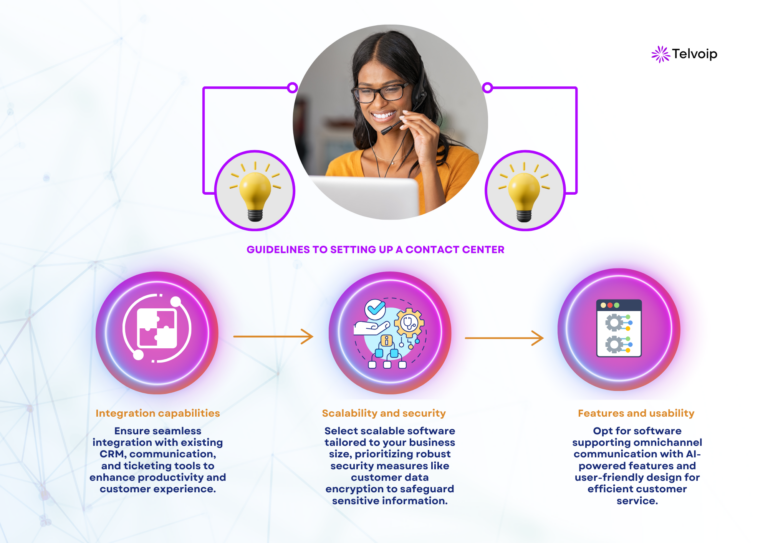Table of Contents
ToggleIntroduction
In Kenya’s rapidly evolving startup ecosystem, customer engagement has become the cornerstone of business success. With mobile penetration exceeding 100% and a tech-savvy population that has embraced everything from M-Pesa to mobile banking, Kenyan entrepreneurs are constantly seeking innovative ways to connect with their customers. The modern Kenyan consumer is sophisticated, demanding, and expects seamless communication across multiple touchpoints, whether they’re in Nairobi’s bustling Central Business District or in rural areas accessing services via their smartphones.
The stakes are higher than ever. In a market where competition is fierce and customer loyalty is hard-won, startups that fail to engage effectively often struggle to gain traction. A missed call could mean a lost sale. A delayed response might send a potential customer to a competitor. Poor communication can quickly erode the trust that took months to build.
This is where technology becomes not just an advantage, but a necessity, especially for startups in Kenya aiming to grow sustainably. Building strong customer engagement is critical. This is where Telvoip, a cloud-based communication platform, comes in. By enabling cost-efficient, scalable, and professional interactions, Telvoip gives startups the tools they need to engage customers effectively and build lasting relationships.
Kenya’s startup ecosystem is one of the most vibrant in Africa, with innovators in fintech, e-commerce, healthtech, and edtech creating solutions for local and global markets. Customers in today’s fast-paced business environment expect fast, personalized, and seamless communication.
Telvoip is transforming how startups communicate and build lasting relationships with their audience. By bridging the gap between traditional telephony and modern internet-based communication, Telvoip is empowering Kenyan startups to punch above their weight, delivering customer experiences that rival those of established corporations while maintaining the agility and personal touch that make startups special.
The beauty of Telvoip lies in its democratizing effect. No longer do you need deep pockets or extensive IT infrastructure to provide professional, reliable customer communication. Whether you’re a solo founder bootstrapping your way to success or a growing team preparing for your next funding round, Telvoip levels the playing field and puts enterprise-grade communication tools within reach.
This blog explores how Kenyan startups can leverage Telvoip to enhance their customer interactions, boost satisfaction, and fuel growth.

What is Telvoip and Why It Matters for Startups
Telvoip is a cloud-based Voice over Internet Protocol (VoIP) platform offering a unified contact center solution for businesses to manage customer interactions across various channels like voice, SMS, WhatsApp, and email. It provides features such as automated billing, comprehensive analytics, and points of sale, aiming to improve customer engagement, streamline operations, and lower costs without requiring physical infrastructure. For resource-conscious Kenyan startups, this technology represents a game-changer in customer communication
Key features that matter for startups include:
- Virtual phone numbers (local and international) to establish credibility.
- Call routing & IVR for efficient handling of inquiries.
- CRM integration for personalized customer interactions.
- Analytics and reporting for data-driven insights.
- Scalability so communication grows as the business grows.
For Kenyan startups, this means professional communication at a fraction of the traditional cost.
The Customer Engagement Challenge for Kenyan Startups
Kenyan consumers use diverse communication platforms, including voice calls, social media, WhatsApp, SMS, and live chat. Meeting customers where they are requires multichannel support and real-time responsiveness. However, startups often lack the resources for traditional call centers and struggle with fragmented tools that hinder the creation of smooth experiences. Engaging customers with consistent, personalized conversations improves loyalty and fuels brand advocacy, which is vital in a competitive market.
Kenya is often called the “Silicon Savannah” because of its thriving startup ecosystem. From Nairobi’s fintech hubs to Mombasa’s logistics startups and Kisumu’s agritech innovators, new businesses are popping up across the country. Yet, even with world-class ideas, one recurring barrier threatens growth: customer engagement.
Startups in Kenya face several customer engagement challenges, such as:
- Limited Budgets and Resources
Most startups operate on lean budgets. Hiring large customer service teams or investing in traditional call centers is expensive and often unrealistic. This means founders and small teams end up juggling multiple roles, leading to delayed responses or missed customer calls.
- Fragmented Communication Channels
Kenyan customers are diverse in how they prefer to communicate. Some use WhatsApp, others rely on traditional phone calls, while others expect quick responses through email or social media. Without a unified communication system, startups struggle to keep up and provide consistent experiences. For example, a customer might complain about a delayed delivery on Twitter while their inquiry email is still unanswered.
- Rising Customer Expectations
Today’s customers expect more than just products or services; they demand instant, personalized, and reliable communication. Thanks to e-commerce giants and global apps, Kenyan consumers are now accustomed to 24/7 support. If a startup cannot respond quickly, customers often switch to competitors.
- Geographical and Connectivity Barriers
Startups serving customers across Kenya, especially in rural or underserved regions, struggle with communication gaps. Traditional landlines are limited, and mobile networks don’t always offer reliable business-grade services. This makes it harder for startups to build trust with customers outside major cities.
- Scalability Concerns
What works for 50 customers may not work for 5,000. Many startups begin with personal phone numbers or basic communication tools, but as they grow, these systems collapse under pressure. Scaling communication without ballooning costs is one of the toughest challenges.
- Lack of Data-Driven Insights
Traditional phone systems don’t provide insights into customer behavior. Without analytics, startups can’t measure response times, call volumes, or satisfaction levels. This makes it hard to refine customer support strategies and spot opportunities for engagement.

How Telvoip Solves These Challenges
- Cost-Effective Communication
One of the most significant advantages of Telvoip for Kenyan startups is cost savings. Instead of investing in expensive PBX systems and paying high call rates, startups can leverage internet connectivity to make calls at a fraction of the cost. This is particularly beneficial for businesses that need to make frequent follow-up calls, conduct customer surveys, or provide phone support.
For a startup in Nairobi reaching customers across the country from Mombasa to Kisumu, Telvoip eliminates the burden of expensive long-distance charges while maintaining crystal-clear call quality.
- Professional Brand Image
First impressions matter. With Telvoip, even a three-person startup can have features like interactive voice response (IVR), call queuing, and professional greetings that make them sound like an established enterprise. This professionalism builds trust and credibility with customers who might otherwise be skeptical about dealing with a new business.
- Flexibility and Mobility
Kenya’s startup culture thrives on flexibility. Founders and team members often work remotely or are constantly on the move. Telvoip systems allow teams to receive business calls on their mobile devices, tablets, or laptops from anywhere with an internet connection. Whether you’re at a co-working space in Westlands or meeting a client in Karen, you’re always connected to your customers.
- Multi-Channel Integration
Modern customer engagement isn’t just about voice calls. Telvoip platforms often integrate with other communication channels like SMS, WhatsApp Business, and email. This unified approach means startups can manage all customer interactions from a single dashboard, ensuring no message falls through the cracks and enabling seamless omnichannel experiences.
- Data-Driven Insights
Telvoip systems provide valuable analytics that help startups understand their customer interactions better. Call duration, peak calling times, missed calls, and customer wait times all become measurable metrics. These insights allow businesses to optimize their customer service strategies and allocate resources more effectively.
- Seamless Multi-Channel Communication
Telvoip unifies voice, chat, and video communication into one platform. Instead of juggling multiple apps, startups can manage all customer conversations in a centralized system, delivering a smooth, consistent experience.
- Professionalism and Trust
A professional business number signals credibility, even for a young company. With Telvoip, startups can have local Kenyan numbers to build trust with local customers, or international numbers to appeal to global clients.
- Improved Customer Support and Retention
With features like call routing and IVR (interactive voice response), startups can ensure customer calls reach the right department or person quickly. Integration with CRM tools further enables personalized interactions, making customers feel valued.
Practical Applications for Kenyan Startups
- E-Commerce and Retail
Online shops can use Telvoip to handle order confirmations, delivery updates, and customer inquiries efficiently. Features like call recording help train new team members on customer service best practices.
- Fintech and Financial Services
For fintech startups dealing with sensitive financial information, Telvoip offers secure communication channels for customer verification, transaction confirmations, and support queries, all crucial for building trust in Kenya’s growing digital finance space.
- Healthcare and Telemedicine
Health tech startups can use Telvoip to conduct remote consultations, appointment reminders, and follow-up calls, expanding access to healthcare services across Kenya’s diverse geography.
- Education Technology
EdTech platforms can leverage Telvoip for parent-teacher communication, student support, and enrollment inquiries, creating a more connected learning ecosystem.
How to Get Started with Telvoip as a Startup
Getting started with Telvoip doesn’t require heavy infrastructure or complex setups, which makes it ideal for startups. Here’s a step-by-step guide to help you roll it out smoothly:
- Define Your Communication Needs
- Map out your current customer communication channels (phone, WhatsApp, email, social media).
- Identify gaps. Are you losing leads because calls go unanswered? Do customers complain about long response times?
- Set clear objectives: Do you want to improve customer support, sales outreach, or both?
- Choose the Right Telvoip Package
- Telvoip offers flexible plans, so start with a basic package that fits your immediate needs.
- For small teams, a virtual business number with call routing may be enough.
- As your customer base grows, you can add features like IVR, call analytics, and CRM integrations.
- Keep scalability in mind, choose a plan that can grow with you, not one you’ll quickly outgrow.
- Set Up Virtual Numbers and Call Routing
- Secure a local Kenyan number to build trust with local customers.
- Add international numbers if you’re targeting clients abroad.
- Use call routing so calls are directed to the right team member: sales calls to sales, support inquiries to support. This ensures professionalism and reduces missed opportunities.
- Integrate with Your Existing Tools
- Connect Telvoip with your CRM (like HubSpot, Zoho, or Salesforce) to keep track of conversations and customer history.
- Link it with helpdesk tools (like Zendesk or Freshdesk) so your support team has full visibility into each customer case.
- Integration ensures seamless workflows, so your team doesn’t waste time switching between platforms.
- Train Your Team
- Even the best tools won’t deliver results without proper usage.
- Train staff on handling calls professionally, using call scripts, and documenting interactions.
- Emphasize the importance of tone, empathy, and response time in customer communication.
- Run mock calls to ensure the team is comfortable with Telvoip’s features before going live.
- Monitor and Optimize with Analytics
- Use Telvoip’s call reports and analytics to track:
- Average response time
- Missed calls
- Call duration
- Customer satisfaction trends
- Analyze this data to improve staffing, identify pain points, and enhance overall customer experience.
- Scale as You Grow
- As your startup gains more customers, add advanced features like multi-level IVR, call recording for quality control, and AI-powered call assistants.
- Expand to multiple virtual numbers for different regions or departments.
- Continuously refine your communication strategy based on customer feedback and analytics.

The Future of Customer Engagement in Kenya’s Startup Scene
As Kenya cements its role as the “Silicon Savannah,” customer engagement will remain a critical success factor for a strategic growth driver. The future will be shaped by three big forces: technology, customer expectations, and competition.
- A Digital-First, Always-On Culture
Kenya’s internet penetration now sits above 40 million users, with most consumers accessing services through smartphones. This means customers expect businesses to be always online, whether via call, chat, or self-service platforms. Startups that can provide real-time, 24/7 support will stand out in increasingly crowded markets.
- AI-Powered Communication
Artificial Intelligence is revolutionizing how businesses interact with customers. For startups, this means:
- AI-driven call routing that predicts and connects customers to the right agent.
- Chatbots and voice bots that handle simple queries instantly.
- Sentiment analysis that detects customer mood and suggests tailored responses.
When combined with platforms like Telvoip, these tools make small startups operate like well-staffed enterprises.
- Omnichannel Engagement
The future of customer communication is not just multi-channel but omnichannel. Customers want to move seamlessly between WhatsApp, voice calls, email, and even video without repeating themselves. Startups will need integrated systems that unify all conversations into a single view, something VoIP-based solutions are already making possible..
- Rising Global Competition
Kenya’s startups are not only competing locally, but they are also competing regionally and globally. A fintech app in Nairobi isn’t just up against local SACCOs, but also global digital wallets. Strong customer engagement becomes a competitive differentiator. The quality of your communication may determine whether customers stick with you or switch to another brand.
- Remote and Hybrid Work Models
Many Kenyan startups are embracing remote-first teams, especially in tech and customer service. With VoIP and cloud platforms, employees can provide support from anywhere, whether in Nairobi, Eldoret, or Kigali, while customers experience seamless communication. This model will only grow stronger, making flexible tools like Telvoip essential.
- Regulatory and Trust Considerations
As customer communication increasingly involves sensitive data (especially in fintech and healthtech), data privacy and compliance will be central to customer trust. Startups that adopt secure VoIP systems will have a competitive edge, proving to customers that their information is safe.

Outlook: Why Telvoip is Key to the Future
The startups that will thrive in Kenya’s future are those that treat customer engagement as a long-term investment, not an afterthought. Telvoip is well-positioned to empower this shift by:
- Reducing costs for scaling communication.
- Offering AI and analytics features for smarter engagement.
- Enabling omnichannel interactions for modern customers.
- Supporting remote teams without infrastructure costs.
In a marketplace where customers have more choices than ever, the startups that listen, respond, and personalize at scale will win loyalty and market share. With its scalable, affordable, and professional solutions, Telvoip positions startups for long-term growth by ensuring they not only attract customers but also keep them engaged.
Conclusion
In a market as dynamic and competitive as Kenya’s, customer engagement can make or break a startup. Customer engagement is no longer optional; it’s a business imperative. For Kenyan startups aiming to scale, building strong, reliable, and professional communication channels can mean the difference between short-term survival and long-term success.
Telvoip offers Kenyan startups a powerful, scalable, and user-friendly solution to revolutionize customer engagement. By integrating voice, messaging, social media, and live chat into one platform with smart automation and analytics, Telvoip helps startups deliver personalized, timely, and seamless customer experiences. For ambitious Kenyan startups, embracing Telvoip can be a game-changer in building lasting customer relationships and driving business growth.
As more Kenyan entrepreneurs discover the power of this technology, we can expect to see even more innovative applications that further transform the startup landscape.
The question for Kenyan startups isn’t whether to adopt Telvoip, but how quickly they can integrate it into their customer engagement strategy. Those who move first will gain a significant competitive advantage in building loyal, satisfied customer bases that fuel long-term growth.
Telvoip offers a powerful solution: affordable VoIP communication, smart features, and scalable systems that make startups look and perform like established enterprises.
If you’re a Kenyan startup looking to strengthen customer trust and loyalty, now is the time to explore how Telvoip can transform your communication strategy







